by Dr. John Mark Reynolds | Summer 2016
Even around the table

The Ambrose School, Meridian, ID
One day in the middle of homeschooling our four children, I looked around our apartment where we were all working. There was not one beautiful object in it. We had wires running everywhere to the family computer and (back in the day!) the modem. My book projects were stacked about the house.
Our children were growing up amid ugliness and not beauty. Teaching had taught me what a bad idea this was, but because our ugliness was partly the genteel poverty of a professor and partly busy clutter, I had not noticed what I was doing to my wife and kids. We were teaching an orderly creation and living in a disorderly chaos.
When I saw this my first emotion was despair. We weren’t going to get a maid. Historically, Reynolds are maids—we don’t hire them. And we were not going to get less busy given our finances.
What could we do?
I was reminded of my four grandparents in West Virginia. They built beautiful churches and homes “without no money.” As Granny would say when she saw a dirty house: soap is cheap. What if we made lack of clutter a priority? What if we took one room—in our case the dining area of the apartment—and made it beautiful?
Beauty is real and seeing it has an impact on our soul. In Italy, they have a name for tourists overcome by beauty: Stendhal Syndrome strikes when you are overcome by the beauty of Florence and smacked into ill health. Beauty can be a hammer to the man who has seen too little of it. Once, walking down the corridor to see Michelangelo’s David, my chatty American students went silent and then stopped. They stared at beauty greater than any online GIF (or JPG as the case may be) could have prepared them to see.
Imagine a child never exposed to the truth. That child would be a sucker for any sophist who promised answers. Now consider a child who never saw a good man. That person would not know a grifter from a saint. The person starved of beauty will not be able to discern glitter from real beauty.
Our education must contain truth, goodness, and beauty. We are, in part, what we see. If we starve our souls of this gift, beauty, we are apt to fall for beauty too hard when we see it and be led into the error of romanticism. Poverty of spirit breeds unhealthy desire that can overwhelm even the most careful preparations.
So what do we do?
We must not just have images of beauty. There is nothing more foolish than thinking an image of Florentine art on the computer is the art. It is an image of an image and the beauty is lost. All human art is a second-hand creation of what the good God made, and so an image on our screen cannot compete. Those lucky enough to live in natural beauty, like my West Virginia ancestors, can compensate to some extent, but many of us add to our artistic deprivation an environmental deprivation.
We are right to worry about the spread of filthy images that objectify men and women. We are right to think that too much ugliness is a vice, but we should ask ourselves: do we avoid vice without embracing beauty? The clothing that is modest isn’t wicked, but that does not make it good. Beauty is good.
So the classically educated family is called to love beauty. We must gaze on it appropriately. We must learn not to love beauty for the sake of beauty, but for the sake of the Beautiful Beloved, God Himself. A beautiful image can lead us to the action that it represents. A beautiful image is an icon to God and the properly trained soul can look through it to see the face of God. ![]()

DR. JOHN MARK REYNOLDS is the president of the Saint Constantine School and a Senior Fellow of Humanities at the King’s College in New York City. He is the former provost of Houston Baptist University and was the founder and director of the Torrey Honors Institute, the Socratic, great books-centered honors program at Biola University. Dr. Reynolds is the author of numerous books, including When Athens Met Jerusalem: An Introduction to Classical and Christian Thought and is the editor of The Great Books Reader. He is a frequent blogger and lecturer on a wide range of topics including ancient philosophy, classical and home education, politics, faith, and virtue.
An avid technophile, the lights, speakers, and computers in his house can all be controlled by his phone, to both cool and disastrous effect. John Mark and his wife, Hope, have four homeschool-graduate children: L.D., Mary Kate, Ian and Jane.

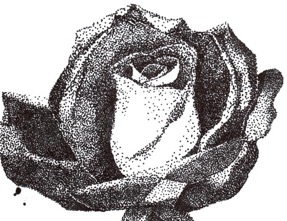

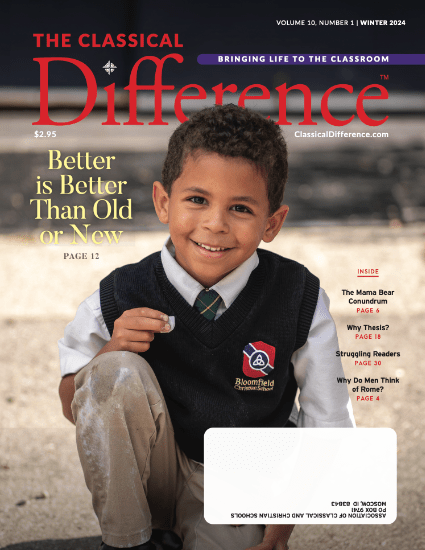



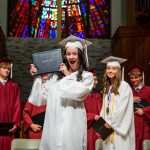
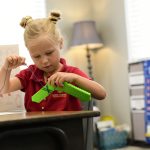
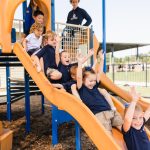



Where might I find the “sources of decor that evoke truth, goodness, and beauty” referred to in the print version of this article?
The page you are probably looking for is:
http://about.classicaldifference.com/surround-yourself-with-beauty/
Hope that helps!